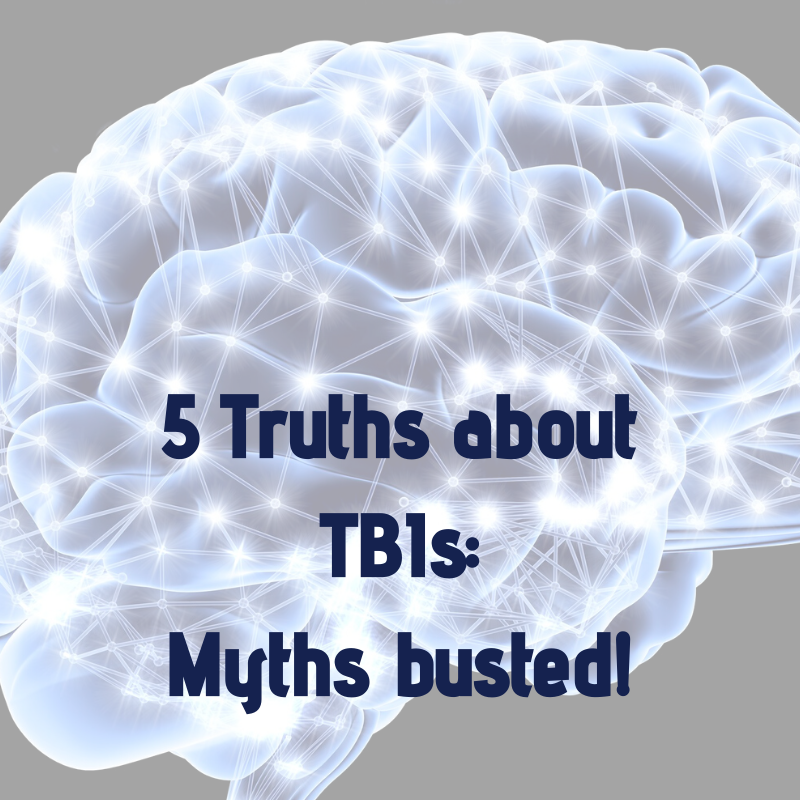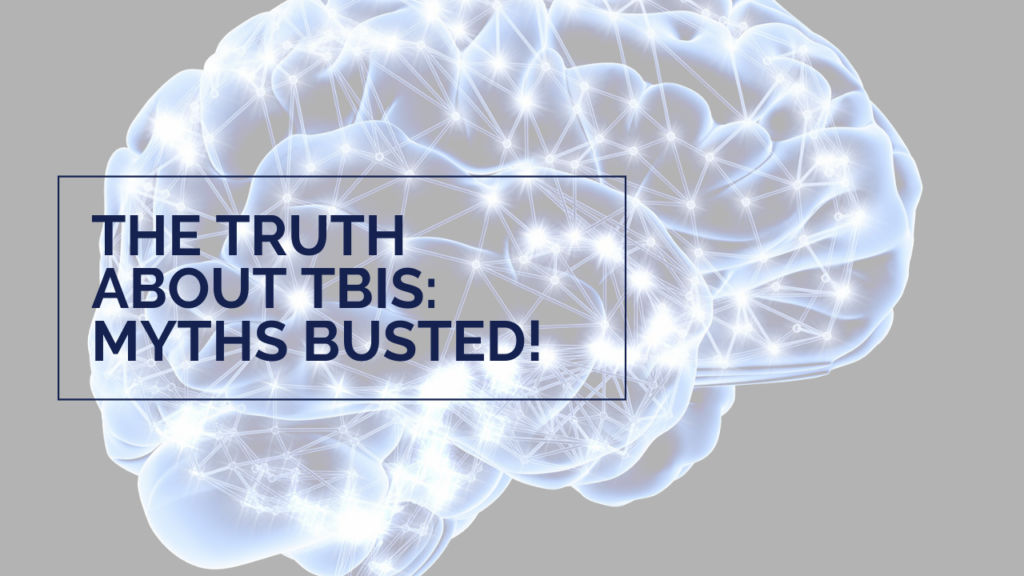Traumatic Brain injuries (TBIs) can be extremely life-changing: symptoms can include anything from fatigue to depression. There are 3 recognized levels: Mild, Moderate, and Severe, and each level comes with an intense physical and emotional struggle by the person suffering. Here are 5 TBI Myths and the truth behind them.
Want to watch the video instead:
Myth #1: TBIs aren’t that serious.
This myth is not only false, but also dangerous for those that suffer from TBIs. Even Mild TBIs can have life changing symptoms, including headaches, memory loss, sensitivity to light or sound, fatigue, and depression; which means a person suffering can experience life altering injuries that cannot be seen by the eye. Yet, they are there!
Myth #2: Mild TBIs will just go away.
Many mild TBIs are misdiagnosed, yet they are life changing none-the-less. A person suffering a mild TBI can experience severe depression, anxiety, and many other debilitating symptoms. Like many wounds, they need time to heal, and in many cases, these injuries never heal. A person cannot will a TBI away, it is an actual injury. In fact, may mild TBI sufferers have a higher risk of suicide than other TBI suffers.
Myth #3: You have to be in a coma to have a TBI.
This myth is pretty far fetched. In fact, a TBI doesn’t require a person to lose consciousnesses to be diagnosed with a TBI. Consciousness is a factor in determining if a person has suffered a TBI, however as the Mayo Clinic states, “No loss of consciousness, but a state of being dazed, confused or disoriented” is all that is needed.
Contact Us
Myth #4: Headaches are the primary symptom of TBIs.
Although headaches are a symptom, they are not the only nor the primary symptom. In many cases, headaches do not manifest until much later. This means that a person who has suffered from a TBI may experience anger, irritability, memory loss, fatigue, insomnia, dizziness, depression, or anxiety way before a headache is a key indicator.
Myth #5: People are exaggerating about their TBI.
Some people do exaggerating, sure, but the reality behind a TBI is that if they are telling you what is affected, then they are probably just telling you the tip of the iceberg. So many suffer from symptoms that they don’t even realize are related that they just give the top main complaints. When someone tells you they have hit their head and are showing symptoms, better to believe than to regret later.
Sadly, these myths are common among the general public, but hopefully this can help!
Resources:
Suicidal Behavior and Mild Traumatic Brain Injury in Major Depression: Maria A. Oquendo, MD,* Jill Harkavy Friedman, PhD,* Michael F. Grunebaum, MD,*
Ainsley Burke, PhD,* Jonathan M. Silver, MD,† and J. John Mann, MD*









